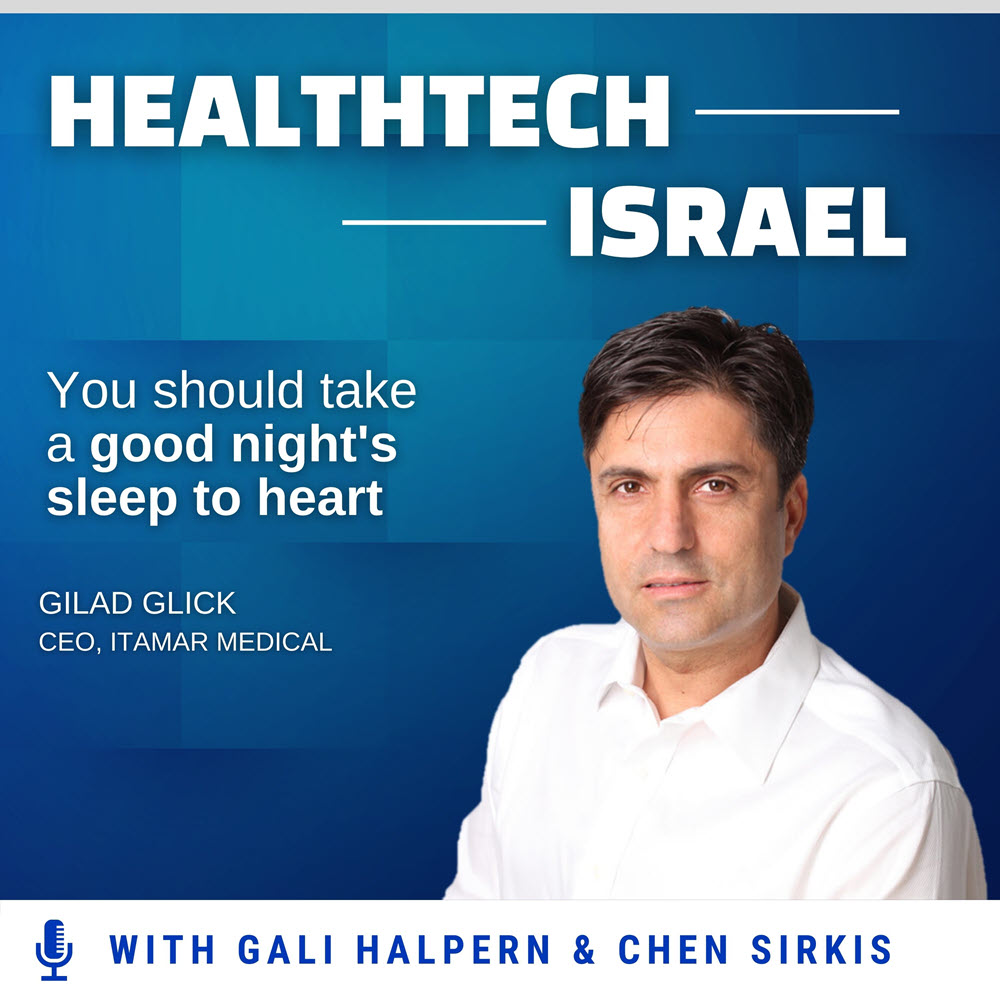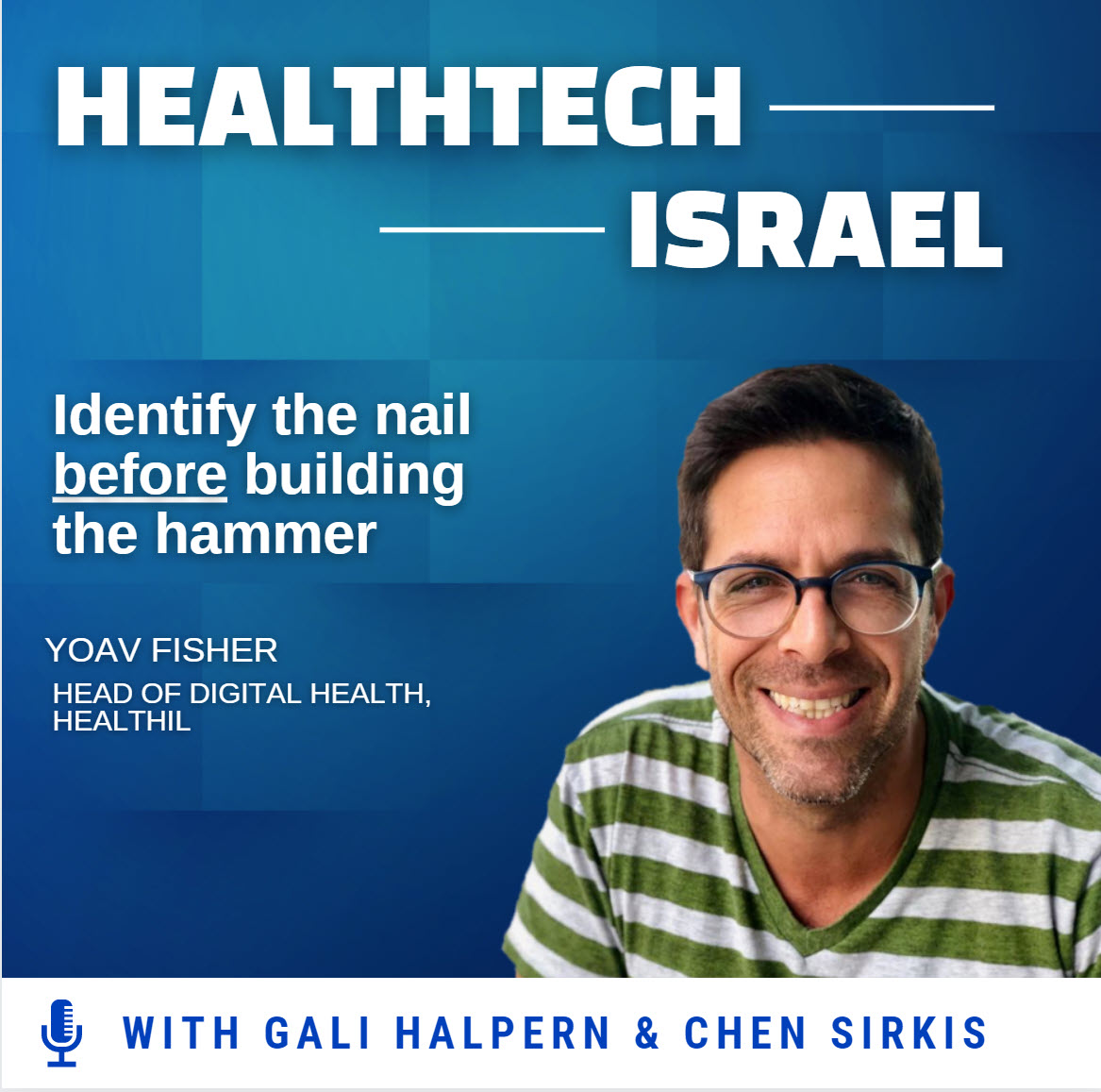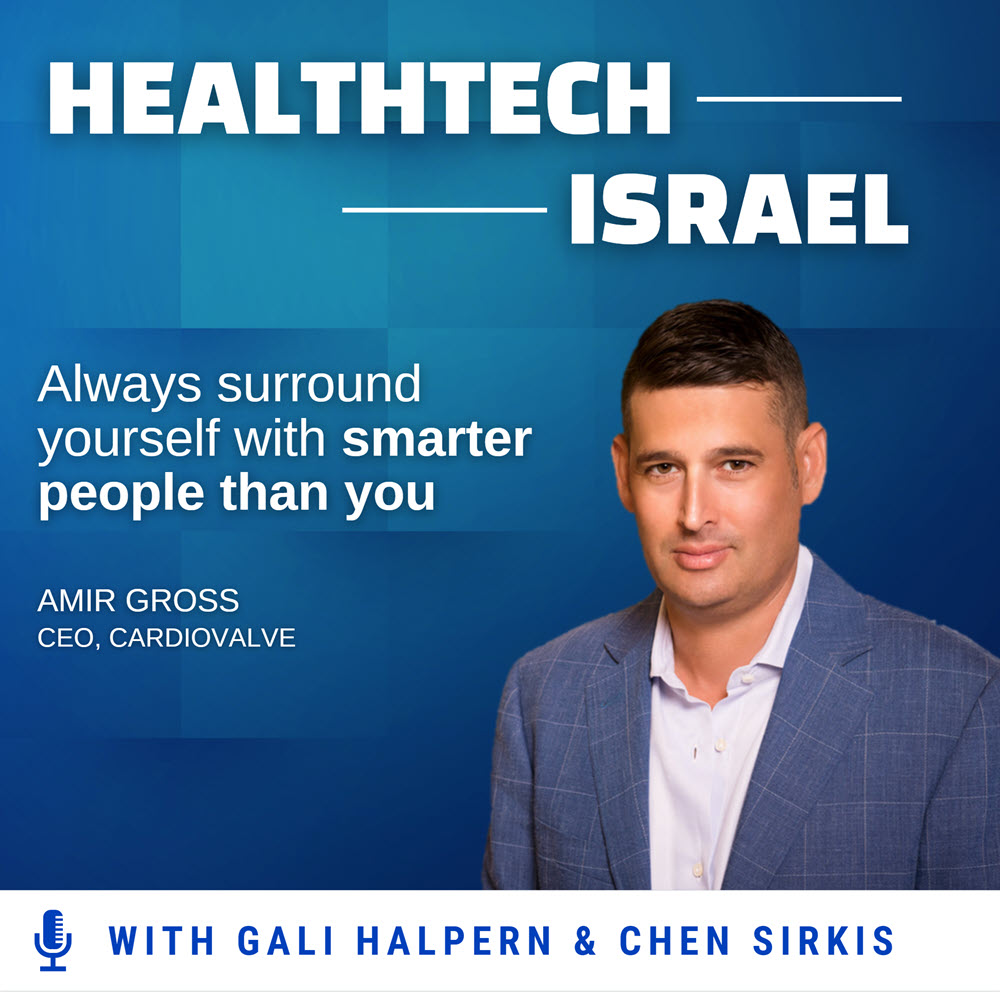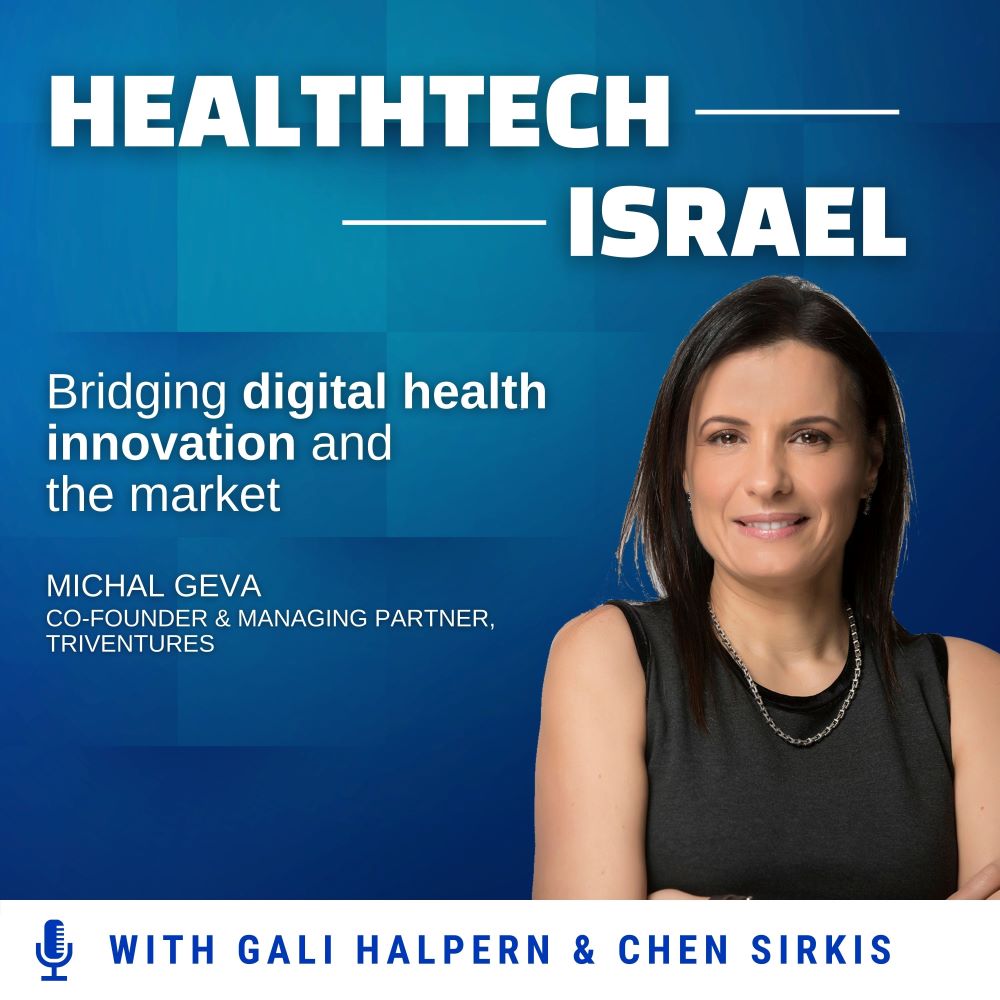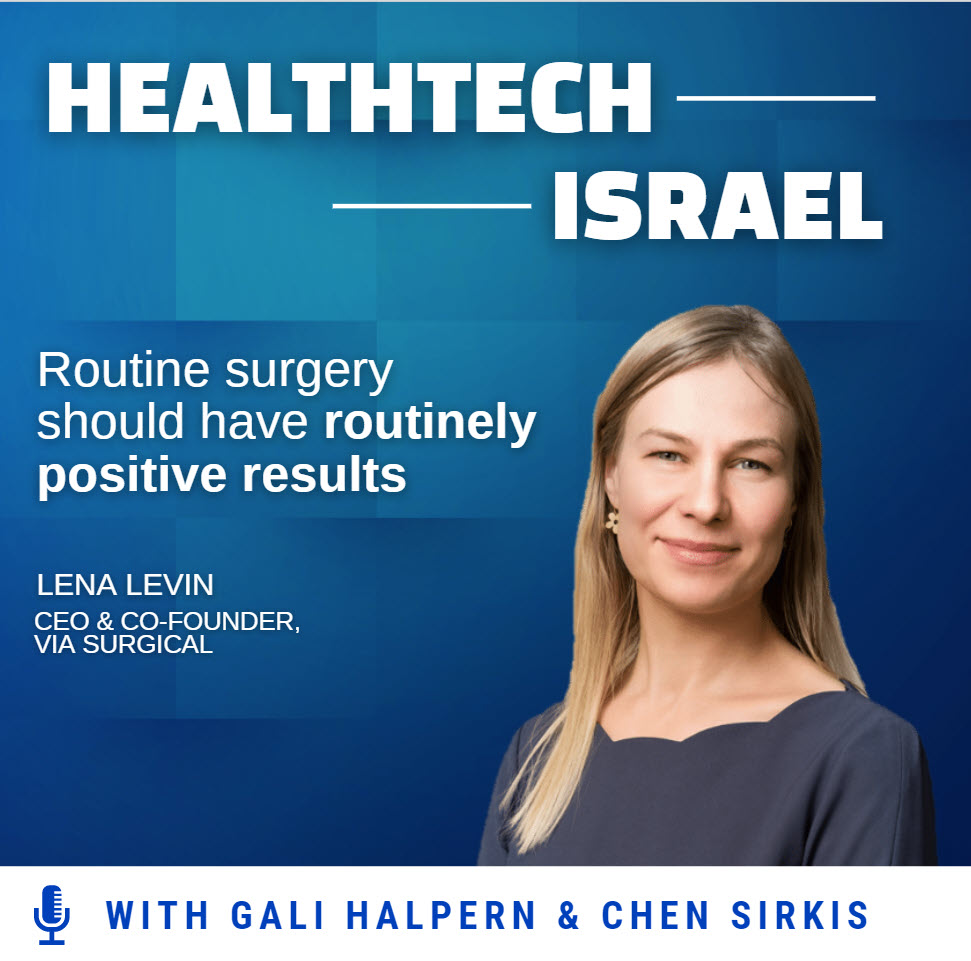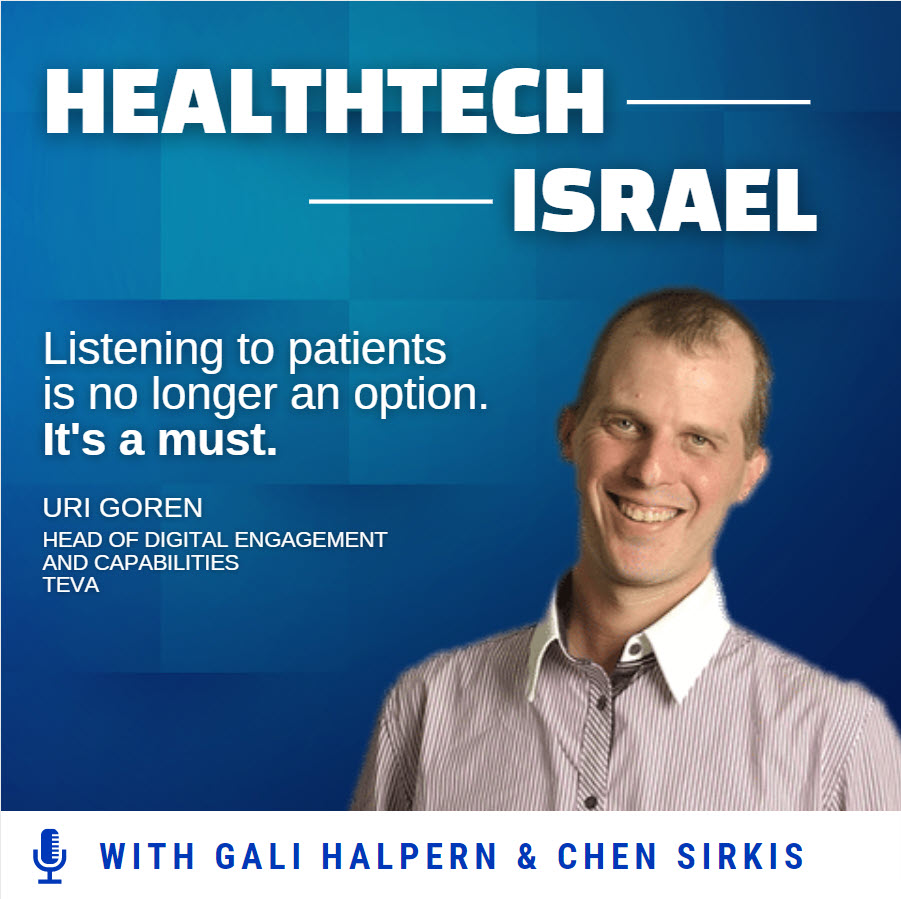Liron Fendell
CEO, nutritional growth solutions
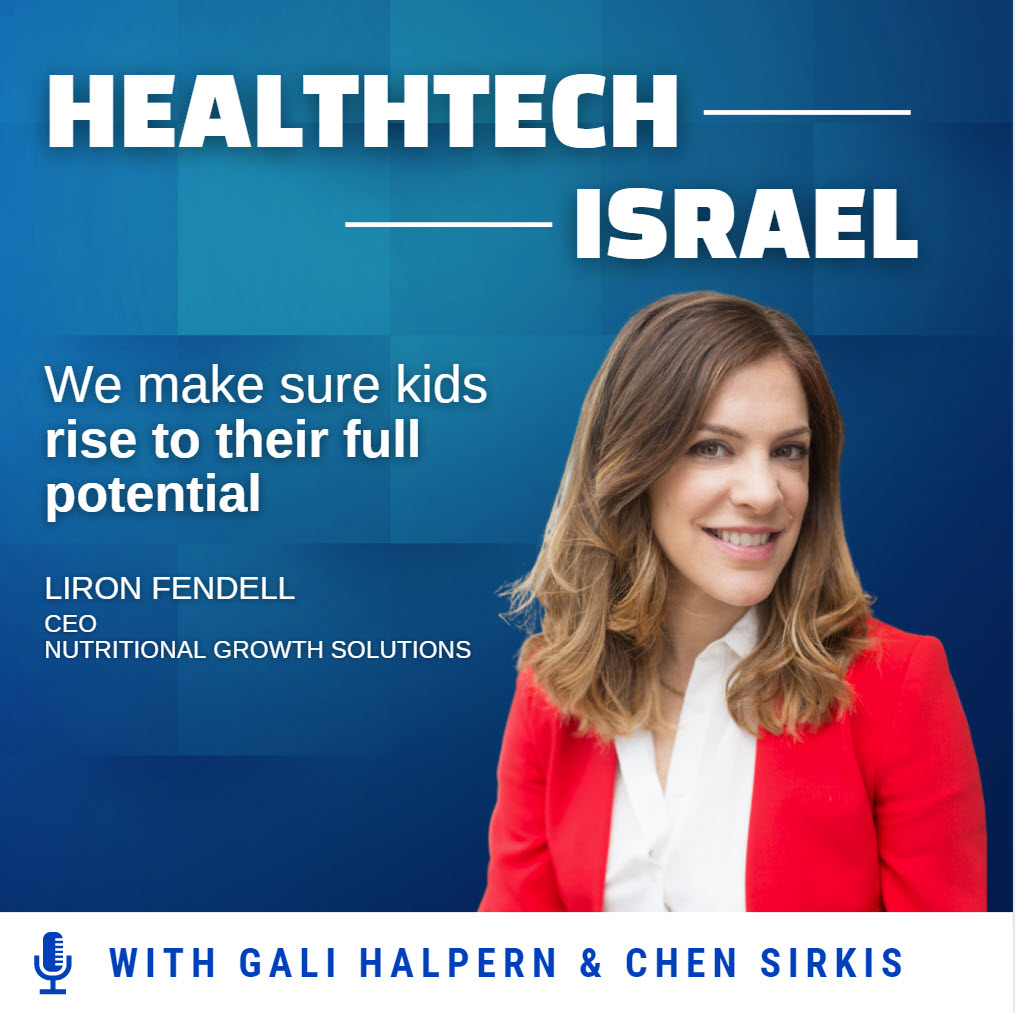
Liron Fendell is the CEO of Nutritional Growth Solutions, or NGS, that specializes in scientific supplement formulas for children of a small stature. NGS shares are traded on the stock exchange in Australia.
Show Notes
01:01 Liron Fendell talks about her professional background.
04:19 What does NGS actually do now?
06:16 What does the gain is 1 to 5, 7 centimeters mean to children and their families?
08:15 When did Liron start thinking about what the brand would be?
12:30 Liron discusses the branding process at Nutritional Growth Solutions.
16:56 What type of resources are needed to be able to support a deal as you had with GSK.
20:59 What NGS's strategy in each region it operates?
22:41 What are the pluses and minuses of working via Amazon or Shopify.
29:13 Who at NGS is involved in your marketing efforts in the different markets.
30:50 How does working with influencers work to push the brand on social media?
35:12 Liron's perspective of the US versus China, or, China versus the rest of the world.
41:09 How did NGS's listings on the Australian Stock Exchange come about?
44:39 What's next in terms of markets, products, ducks, etc.?
Interview Transcription (mild edits)
So, let's start talking about you. Who is Liron Fendell? Would you mind telling us a little bit about your professional background?
Sure. So thank you, and good morning. Yes, so actually, I grew up in Tel Aviv in Israel and I'm originally a corporate lawyer. I practiced law in one of Tel Aviv's biggest law firm, for about seven years, representing startup companies as well as some bigger pharma companies. Until back in 2014, I met the team at Schneider Children's Medical Center of Israel. And I learned about the clinical studies and the research that they're doing with supplements for children. Specifically, supplements to help kids, as you mentioned, of short stature to grow better and taller. And for me, it was super interesting, because back then, I also had a child who was only 3 at the time. And we also struggled with picky eating and I knew firsthand how challenging it can be to be a parent and to make sure that your child gets all the right nutrients for their nutrition and also being a busy mom. So, not really available to just cook spinach and meat and chicken and amazing dishes every day just to see them get thrown away by my kid. So, it was just a really frustrating cycle. And when I learned about this research that's going on at Schneider’s, I was just fascinated by it. And I was lucky enough the team at Schneider's and Clalit Healthcare, who is the owner of Schneider Hospital. They were just at the phase when they were looking for someone to come up with a more business perspective to join the doctors and really start to commercialize the supplements that were just developed at Schneider's at the time.
So, this is when I really relocated from a fancy office, law firm, in Tel Aviv with a secretary and really great physical environment and moved to Schneider's Children. I had a really small room in the hospital together with the research coordinators who I'm sure weren't really sure what I'm doing there at the time.I know, Chen, you visited us at Schneider's, when we were early on just starting and trying to commercialize these supplements. I guess this is really how I started in NGS.
So, I assume you're not there anymore. But what happened since then, and what does NGS actually do now?
Liron Fendell: Yes. The first thing that we've done ... We had a deal done with GSK, GlaxoSmithKline, who basically purchased the license for a product into the Indian market. And they just paid 7 million pounds at the time just for the right to commercialize the product into the Indian market. And for us, this was the turning point. Because this was the initial funding that enabled the growth of the company. So, what we did since then, is we continue to develop new products. So, we're no longer just doing that growth supplement that we started from. But we are now developing and already commercializing some new products as well. And in addition, we just had a good conversation before this podcast about global market. So since then, we also expanded to some global markets. Our products are now selling in the US, which was our main point of focus for the past 3 years or so. We established a wholly owned subsidiary in the US and we have an office in San Diego with sales and marketing personnel. We are also selling in Europe and just launched in China. So, not a dull moment, I tell you. And I moved to an office in Tel Aviv.
It's wonderful. I'd like you to go a little bit deeper to talk about short statured children. Because sometimes the gain is 1 to 5, 7 centimeters, which does not sound a lot. But it is significant to these children and their families. Why is that?
Liron Fendell: Well, it's not just about the centimeters. I mean, when a child is born, they have a specific range; it's really being dictated by their genetics. So, height is predominantly genetic. And if you have two short parents, you probably won't be an NBA basketball player. By this range is like, 5 or 6 centimeters usually. While you fall within this range, this will be influenced mostly by nutrition. So, a child can be between, I don't know, maybe their genetics dictated they would be between 165 centimeters to 170. But where they fall within this range will be influenced by their nutrition. And for many parents, and I know this was the case for me, it's not just about the centimeters, but it's also about having that sense that you're doing everything that you can for your child.
Because the thing you'd want to feel is that they could have been 175, but because I didn't cook enough or I didn't give them the right nutrients, they'll be 165. So, and again, it's not just about the height. Because also getting the right nutrients and getting proper nutrition also influences many other things. And height is just a reflection of that. Because if you get healthy nutrition, it will also be apparent in height and looks.
Helping kids get heigh
I have this quote that you've probably this quote attributed to Hippocrates, "Let food be thy medicine and medicine be thy food." There's a big trend around nutrition and around using nutrition to get healthy or to support a healthy lifestyle and also treatment. But in this case, you've developed something that treats through nutrition. You also are working very hard to brand yourself as a medicinal product as opposed to just a nutritional supplement. Can you tell us a little bit about that journey? When did you start thinking about what the brand would be? What kind of affected that decision and how do you balance that nutrition versus pharmaceutical in your work?
Liron Fendell: it really started even before I joined the clinical study done by the medical team. The medical team were used to conducting clinical studies on drugs. So, all they knew are the protocols that are dominant in the pharma industry. So, this is the protocol they used for the supplement that they develop as well. So, this was a prospective, randomized, double blind, placebo-controlled study. And the clinical study was a really good one, and it showed very good efficacy for the product. So, when I came in, that was already a given. And knew that having this clinical study, that was, obviously, cost a lot and it took a long time. it's the only reason that it was possible,
because this was a hospital and they had access to the resources and the patients. And so, we knew from the beginning that this was our advantage; this was our unique selling proposition. And this is what we had and no one else had. Having these clinical studies made it possible for us to write claims on our products, which not many supplements can. We can have patents too. maybe most important, it just helps us all to go to sleep every night, knowing that the product that we're selling, are really doing what we say they can and really helping children, which again, not all supplements can say that. So, this was really what dominated that strategy from day one.
And then from there onwards, it really grew from there. When we enter the US, for example, one of the things that we did is we got insurance reimbursement for our product. And again, because we had these clinical studies behind us, it was possible. Kind of like medicine, but this is just food.
So, even though it's just food, it is possible to now get reimbursement for the purchase of our product, which is by the way called Healthy Height in the US. And now we're also working with Medicaid to also get that available through Medicaid.
I'd like to ask another question about branding. Most Israeli founders come up with the name for their product, because they dreamt about it at night. But this is not your case, it's not a spur of the moment thing. Healthy Height is a great name. And you underwent an extremely structured and lengthy process to reach the point where you have a good name to market to consumers. Could you maybe talk about that process so the listeners could understand what it takes to build a brand for a company?
Liron Fendell: Well, it takes a lot of money. I can tell you that. It was made possible by that GSK deal that was a non-branded deal. Because with the GSK deal, we just sold the IP, which is what most Israeli companies or most early stage companies do. It makes a lot of sense, because it's just the cheapest thing to do. But not in a bad way, it's just the most economic thing to do because there are hardly any expenses. When you want to build a brand and you want to go directly to consumer, especially in a market like the US, you need to be able to put a lot of investment into it. So, because we knew that we're going to spend a lot on marketing, we wanted to make sure that all of our marketing dollars will go to the right places. And in order to do that, we wanted to make sure that we have a really strong brand. So, we actually contracted a very good branding agency located in Boston. And we worked with them to do customer surveys and talk to our potential consumers. We had 600 parents of kids who are short and lean and basically spoke to them. Asked them; what would you want? How do you see what are you currently buying? What would you expect?
For example, I'll give you one insight that we got from there is that these brands: They didn't really want to see this product as a drug or medicine. So, like what you said, Gali, we actually moved away from that in the branding. And if you look at our packaging, it really looks are sweet and organic and natural and not so much like a drug. And this is because we understood that parents aren't really enthusiastic about giving drugs to their children, as opposed to just giving them healthy nutrition. And it also goes to safety, which not surprisingly, was the number one concern with parents. So also want to make sure that our branding and our packaging really communicates the safety of the product. And again, going back to the fact that it's just food, it's just healthy nutrition. And that's what health and nutrition can do for you, which is a lot.
One of the things that they want to see is the scientific evidence. They want it to be backed by doctors. And when you look at your website, this is actually one of the first thing that is mentioned. That it is was developed by doctors and backed by doctors.
Liron Fendell: Again, it really goes back to the safety and to the fact that people are used to getting fooled. We need to build the trust. And one of the most effective ways to build this trust is with the doctors, with our medical team. They have such a big reputation, which was built over many years, and are working so hard to keep it. They develop these products. And using that and showing off the clinical evidence is really what's helping us here.
It's very rare that an Israeli startup company signs a big deal with a pharmaceutical company so early in their lifecycle. How did that happened and how did you deal with it as the CEO. What type of resources you need internally to be able to support a deal like that with a pharmaceutical company?
Liron Fendell: The two founders of our company, Professor Moshe Phillip and Professor Raanan Shamir from Schneider's one of them is an endocrinologist and the other is a gastroenterologist. And they both initiated a conference, a scientific conference, called the International Conference on Nutrition & Growth. This is taking place every year. And many doctors are coming from all over the world to present and to see lectures about nutrition and growth. And during one of these conferences, they presented the clinical study behind Healthy Height, and a team from GSK were in the audience. And it made them very interested because they actually had a lot of products called Horlicks that is sold in in India. And they were looking for like a premium Horlicks. So, something that's more evidence-based. And it was really a great timing for both parties. In terms of the resources internally ... Honestly, it's not many employers, obviously, to do the contract. But other than that, again, that as opposed to going direct to consumer, just signing a deal where you license the IP is more straightforward. You're like to just do this license deal and you move forward with it. We had two years where we will you needed to support them with the production because they're producing for the Indian market. We're going to produce here in Israel in the US at a cost. That would beright for the Indian markets; so, they're producing in India. So, we had to obviously work with them on the production and the formulation, and everything that had to do with it. But only when we started working with them, that we realized that they really didn't have the operations to support us at that point in time. Very early on, when we got that, we told them, ‘Thank you. But this is not the right timing for us.' Because when you're selling products, especially when you're selling products, we want to make sure that the suppliers that we work with are very professional and know what they're doing. And maybe this is an important point, because this is another thing that I see some other early stage startups struggling. Which oftentimes, the sales are running very fast and the operations isn't there to support it. We just had something like that with an Israeli company with amazing ingredients approaching us and showing us this amazing presentation. And we were very thrilled about working with them and incorporating some of their ingredients into our product. We also learned a lot from that experience working with GSK on their production, which made it easier for us, when we then wanted to produce the product commercially. Already knowing how big companies like GSK, are producing our products.
Is India the only territory where you white-label your products? Or does it happen in other areas of the world? What is your strategy in each region?
Liron Fendell: Well, so our strategy in each region is like this. In the US, we built our brand. As you said, I mean, we work with a branding agency. By the way, right now we are working with another branding agency to evolve our brand. So, also doing a new very structured process of branding, because where we were like 5 years ago, 4 years ago, is not where we are now. So not only is this a big investment, it also is an investment that you need to undergo every few years. In China, it is the same thing. So also doing direct to consumer building our own brand. But in other regions, other markets in the world, we're doing white-label. So, for example, in Europe, because Europe is so fragmented, you have so many territories, so many countries, so much regulation, like every country is different. I mean, yeah, you have different work-styles, you have all the general regulation. But at the end of the day, if you launch in Italy it really isn't the same as launching in Germany. So, we are partnering with local partners. So, in Italy, we actually have a really good partner called Dicofarm, who's selling supplements and over-the-counter drugs to children. We are working with them and we're selling them under their label.
I just noticed that in the US, you sell directly through your store Shopify-based website and you do some Amazon sale as well. Could you walk us through the differences between or the different approaches in terms of the sales strategy? What did you find are the pluses and minuses of working via each of these channels?
Liron Fendell: Sure. So, maybe I'll start with why we even chose to start with online sales, because this was the first decision that we had to make. And again, at the end of the day, it's because of the budget. We understood very early on that selling in retail, when you're at a very early stage, some people call it like the 'singing of the siren'. So, it can be a bit of a death pill. Because when you sell into retail, it's called fast-moving consumer goods (FMCG). And it's called that because the goods need to move fast. So, if you put products on the shelf, you need to make sure that you can support being able to get the product out of there. So, people need to know about your product, need to come to the store, pick it up, buy it, and you need to invest a lot in marketing and brand building in order to make that happen. We wanted to start by building our customer base. And the way to do it, as we all know, is e-commerce. and it was known before COVID but it's even more evident now. So initially, we started by building our own website, which is a Shopify-based website, as you mentioned. And it's great and it really tells our story and builds our brand. And everybody who buys on that platform is our own customers. We can have the relationship with them and send them emails and speak to them and have the interaction. Not many people knew about our website or about Healthy Height when we just started. So, this is why very early on, we also opened an Amazon store. Because Amazon, they have the customers. So, if you're an Amazon, you have access to so many people, so many customers. And for us actually, having the combination is the winning strategy. It's very difficult to have one without the other. Nowadays, it's almost compulsory to have both if you want to do online, at least both. Because you want to have one place which is your own, where you can tell your story and where people who are really there for the long run. We have like, on our website, we have 'subscribe and save'. We have, 'buy more'. ‘get more.’ So, people who are there for the long run would usually come to our website; visit at some point. But for acquisition, Amazon, you can't beat them. Even if you look at conversion rates, we can't ever get to Amazon's conversion rate on our own website. If it's 2 or 3% on our website, it can be 11% or 20% some days on Amazon, which is crazy. You don't see that on the brand’s website. And it's because people go to Amazon, they want to buy, as opposed to people going to your website where they want to learn; they wanted to see it. At the end of the day, you have that one click purchase, it's so much easier than filling in forms and giving your data to this brand that you don't even know much about.
I love how you're explaining the sales process and how aligned you are with retail and e-commerce. Because you are a product that is in the health space and you want to also receive feedback about how well things are going with your product. Or how much of an effect it has on your customers. How do you get feedback on whether your product is working or not for the patients, for the kids?
Liron Fendell: Nowadays, everybody is sharing their experience with you. Like it or not. So, both on Amazon, you can see we have many reviews, over 1000 now. People are sharing what they like and what they don't like about the product. And fortunately, many people are also sharing how the product helped them. And also, in our own website, we are working with an Israeli company called Yotpo. They're really great at compiling the reviews on the website. And we have all the reviews on our website as well on the Shopify website. So, we are getting quite a bit of reviews from our customers.
We are also sending customers emails, asking them to talk to us. We hired a full-time nutritionist. So, we have an in-house nutritionist, just there to speak to parents to help them. And you can see how she speaks to these parents and helps them and supports them, for example, with recipes. Like some people would come to her and say, 'My kid wouldn't drink the shake, what would you propose I do for them? And then, they would actually give them recipes and help & tips. And even for those who don't buy the product, just general tips on nutrition and how to incorporate more nutritious foods into the kid’s nutrition. So, just to answer your question, we don't have any, I guess, structured way that we can follow up on how kids grow. Because at the end of the day, we cannot control that. But we are getting a lot of feedback from parents, which is one of the big advantages of being an online business.
Who are the professionals in the field that you're using to promote the product and get at the right brand. I'm assuming there's physicians involved, and nutritionists. Who really is involved in your marketing efforts in the different markets?
Liron Fendell: So, I wouldn't say that the doctors are involved in the marketing but just having their credentials and the clinical studies that they've done and clinical work that they've done with us is something that really opens the gates. When it comes to real marketing, usually we hire nutritionists and dietitians who are doing that work and really promoting the products with healthcare providers, mostly in the US. And also, mothers. I mean, we use a lot of mommy bloggers, on Instagram and Facebook, and other platforms. So, at the end of the day, mothers listen to other mothers. So that would probably be the biggest chunk of the influencers that we use.
You work a lot of with influencers. This is important, not only for the initial sale, but for the ongoing sales because you're looking at the lifetime value of the customer. It's not a one-off sale product. And I guess that to see the best results, parents will need to give it to their children over time. I see that you're doing a lot of work with influencers. I just noticed that you signed a deal with an entertainment company called Yoola in the US. How does that work? Working with influencers is pushing your brand on social media?
Liron Fendell: You can’t do better than working with influencers. And when you get the right influencers it's just priceless. There's a book called, "Everything is Obvious" by Duncan Watts. In this book, he describes a lot of researchers that were done with influencers. At the end of the day, the conclusion is that if you work with many small influencers it brings much more results than just working with 1 or 2 mega influencers, like the Kim Kardashians of the world. And this was always our tactic. So working with them, with many mothers, dieticians, nutritionists around the US to get exposure to our products. One of the things that guide us, which makes a bit different, is the fact that we really want our influencers to be authentic. So, it's important for us to work with people who are actually using the product and actually have kids who use the product. So, this is a bit of a limiting factor. Because it, obviously, takes a bit more time to find these people. So, we have someone ful- time that her job is just to identify these influencers. And when you find, you can see it like, I don't know, an HR person. Like when you find the right employees. It makes a huge difference on the company. But the influencers, you always need new influencers like an airflow. So, we always need to fill in the funnel. So, it's all challenging. And this is why partnering with Yoola was also very important for us. So, Yoola represents some of the biggest YouTube talent in the world. So, we partnered with a kid called Gavin Thomas is represented by Yoola. And he's just a 9-year-old from Minnesota, who's also enthusiastic about Healthy Height. It was really important for us to have that authenticity. So, he's a small child loves the product and drinks it regardless of us partnering with him. And so, that was a really cool partnership with him.
That's really surprising, because you had a press release that you started working with Gavin Thomas. And I was imagining this like, adult or parent, and I went into his channel, and this small guy has 8 million followers and this is a 9-year-old kid ... His profile on Instagram links to your website.
Liron Fendell: So, it's really partnership and as opposed to the other influencers where it's just a one-off or a few-off. This is more of a partnership. Part of the other thing that are really helpful with having influencers is they also create content for your company as opposed to hiring. So, we also have, obviously, content writers in our company, but also having these other people for writing different content. So, they would be writing recipes, or articles or photos of the company. So, it really creates a lot of diversity. So, we also look at that on the influencer’s basis. Not only as contributing, and the promotion and marketing part of things, but also related to branding.
You have a very interesting perspective of US versus China, or, China versus the rest of the world. We are seeing a lot of consumer-based healthcare coming from China. And you're knee deep in China with your activity. Are you seeing some unique trends in China that you think we should kind of pay attention to in the healthcare space that might be coming to the Western world? How do you are you dealing with competition in that market?
Liron Fendell: Yeah. Well, the first one is really a tricky one, about unique trends in China. One thing that I would say is, and I don't know, if it's just China or is this something that we're going to see from the rest of the world also now Post-COVID, or mid-COVID, depends on which day it is. The tendency ... I mean, in the past, you would see people in China really looking to import and to buy products that are foreign and this is a really strong trend. And they didn't trust domestic products. They preferred to pay more to buy products that are coming from outside China. And this is no longer the case in many places, because Chinese production and Chenese brands are doing an amazing job creating very high-quality products. And customers in China are realizing that and really starting to buy more domestically. Which isn't great news, I guess, for people who are trying to export into China. And they're also not willing to be fooled. So, there aren't willing to buy products in China that would be sold to them at double the price of what is sold outside of China. I mean, today, we have the internet and you can see how much it's selling for in other places. So consumers are getting it. I don't think it's just in China, it's worldwide. But consumers are really getting more and more intelligent, more and more sophisticated. And the brands need to up their game in order to get these consumers.
Selling into China, there are basically two main channels. The first is called cross-border ecommerce. And you can sell it to China using cross-border ecommerce, without having to deal with the regulation in China. All you need to do is you need to be able to show that you're already selling at one of the territories that are acceptable by the Chinese government. Israel or the US, that your brand is registered in that directory and then you can actually sell directly into China. There are some limitations to that, obviously, and you need to pay more taxes. But as a way to start and get market validation, it's a great way to start when it comes to actually selling a product into China. Again, here we have the advantage of not being the drug and also not being an infant formula. Again, we're just food. So, food obviously has some regulation, but I guess it's not as strict as some of the things like medical devices or drugs. And what we have done is we've partnered with a manufacturing facility in New Zealand. And New Zealand is a big exporter into China. They have many treaties. So, it's very easy to export from New Zealand into China. They also have regulatory team that knows all the ins and outs of what we can and what we can't do. So, we're working with them to develop a formulation that's specific to China. But there are no shortcuts. If you want to penetrate in a new market, you need to do everything right. You need to build the operations for that market and you need to build it right.
You need to build the brand. I mean, the brand that I just told you all about how it's amazing for the US; doesn't walk in China. We need to build a different brand for China because they are looking for other things there. The things that they care about aren't necessarily exactly what people in the US care about, or in Italy or in India. So, it's a lot of work, you need to build it all over again. And this is why we only chose to do it in those two big markets, the US and China. Just a lot of work to build a brand for a territory.
I don't think we can have this interview without asking about your listing or NGS's listings on the Australian Stock Exchange only a few months ago. How did that come about? And why did you go for Australia rather than another round of private investing or funding?
Liron Fendell: So it was a really interesting time, fundraising and IPO-ing really into COVID. And IPO-ing in Australia from my home in Tel Aviv at 1am in the morning. But the reason that we chose to do it is because we really wanted to get the exposure to Asia. And I mean, we even thought about maybe doing an IPO in some of the Asian stock exchanges. But at the end of the day, we opted for Australia, because it does have that exposure into Asia but it's also one of the biggest stock exchange markets in the world. And it's in English so obviously. It's also easier than conducting our business in Chinese. So, it was really good solution for us. I mean, we aren't big enough for NASDAQ, maybe in the future, but not there yet. And Tel Aviv wasn't really an option for us back then. I mean, right now we're seeing more and more startups listing in Tel Avi, but in April 2020, there was a lot of activity in Tel Aviv, it wasn't a great place to be in. So Australia was a really good place for us to list and we're actually quite happy with this.
How has your life changed since the IPO? Not just because you're listed on the Australian Stock Exchange, but you're working with international markets with very different time zones. So, how do you deal with that in your kind of day to day?
Liron Fendell: There are two main things. One is the need to really run a public company. So, running a public company is really different than running a private company. And I'm still learning. I'm just doing this for 6 or 7 months now. But it's definitely a learning experience and what it means. And it's a lot of like corporate governance and reporting. And I mean, it's a whole different ballgame. And also, to add to that, the time zones, because our main office is in San Diego, which is 10 hours behind Israel time. And my investors and regulators are in Sydney, which is now summer so it's just 7 hours ahead of us. But during winter, it's 9 hours ahead of us. So, basically what it means is waking up really early in the morning, doing all the Australia and China calls and meetings, then I'm free for lunch.
And 5pm, we start the day in California. So yeah. So, everybody who come to our company, they know that we start the day at 7am California time. Yeah, because they are really like, just start the day at some point. So, usually 5 to 10. We have like meetings and calls then that's it.
The ideal work life balance, I understand. So, you've done amazing things and I looked a little bit at your charts and I saw that the sales are growing in nicely. What's next in terms of markets, products, etc.?
Liron Fendell: Yes, so we're really working on a three-pillar growth plan, which means more products, more territories and more sales channels. So, more products, I mentioned the rebrand that we're now doing. So really right now, we're at a phase of shifting from being one product company, Healthy Height, basically, to having a whole suite of products. So, shifting from a product, to really a brand and umbrella of products. And we're launching a new product for kids who are 10 years old it up; our current track is for kids 3 to 9. So, we are launching a new product for older kids. We just launched a protein bar; variety, so not just shakes now also protein bars. We have a sports product under development. So, more products that are always clinically proven and evidence-based.
We also purchased US company called KidzShake. Because we want to develop, like a variety of protein shakes that are more general for children, including a vegan option, because all of our products are dairy. And we are seeing a need for also a vegan option. So, instead of developing it in house, we're lucky to find another company who already developed an amazing product. And they were willing to sell their business to us. So, we're now also incorporating their products under the Healthy Height brand. So, more products, definitely, more territories.
The expansion into China is a huge one for us. And it takes a lot of resources from our company, but it is one that we really want to succeed with. So, we have the China expansion and new sales channels.
I explained to you in length, why retail is bad and you don't want to go into retail. But now we are going into retail. Because after 3 years of e-commerce and online, with tens of thousands of customers online we saw that we are in a phase that we can go into retail and we're going to be obviously phased. This is the next big thing for us in the US is going into retail.
Can you share what you think have been important milestones or critical anchors that you've had through in your process? Who or what do you need around you? You came from the legal side, from being a lawyer to being a CEO. Someone who wants to do what you've done. Which by the way, it's exceptional? But someone who does want to go through your journey, what would you recommend that they do and prepare?
Liron Fendell: Well, you hit the nail on the head when you said, 'Who do I need.' And it's about building an amazing, exceptional team. And we're lucky to be surrounded by exceptional people. So obviously, we have the medical team who are like some of the most renowned doctors in the world in their field. So that's been just a pleasure and an honor to be working with them. And also, moving on to the commercialization phase. We were lucky to work with amazing people in the US, who know what they're doing and had a ton of experience. And I've learned so much from these people about how to market a product, how to market to Americans, how to sell products online, how to sell products now into retail.
Also for product development, having this interaction and combination between Israeli doctors who have endless knowledge about the science and kids’ physiology. And American marketers, who knows so much about the market and what they need and what they're looking for and working together with all of them. This is what took the company to where it is now.
I work with people who are great. I have a really great HR Director, Hila Balak. So, she once told me, 'We don't swim in shallow water.' Like we only take the best of the best. This is really what help me, obviously, as a manager. I get to go to sleep every night and get great sleep because I know I have amazing people who even, when they sleep, they work in the US and Australia and in China and continue to do amazing things. And this is really what helps put everything in motion.
As you put it, the right people willing to invest in your brand because it takes a lot of money. And you said before, 'There are no shortcuts.'
Links
(More) Amazing people to learn from
Gilad Glick is CEO of Itamar Medical, a company that has change the home testing for sleep.
Yoav Fisher is Head of Technological Innovation and Digital Health- HealthIL. HealthIL is part of the Israel Innovation Institute, a not for profit organization bringing innovative technology and knowledge into real-world settings
Amir Gross, is co-founder and CEO of CardioValve. Before co-founding and managing CardioValve, Amir founded and led Valtech Cardio in 2005 until its acquisition by Edwards Life Sciences (NYSE: EW).
Michal Geva is Co-founder and Managing Partner of Triventures. She is one of the most prominent investors in Israel's MedTech and digital health scene. Michal resides on the boards of many companies and has accumulated a track record of multiple exits.
Lena Levin is the co-founder and Via Surgical, the first and only company to create suture-like fixation solutions to address imminent market needs. Her previous venture PolyTouch Medical was acquired back in 2011.







